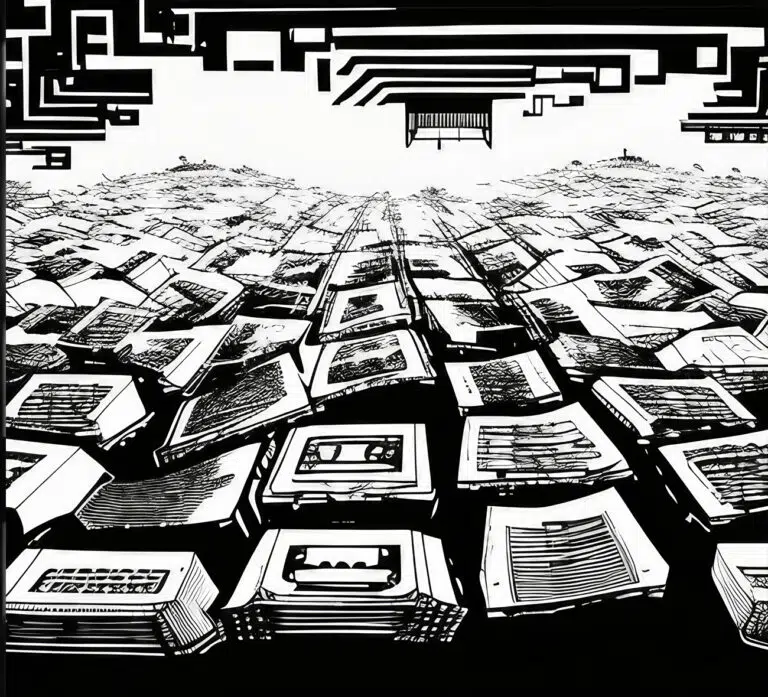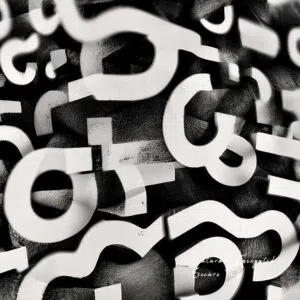If you’ve been with us for a while, you know we’ve explored the impact of NFTs across various sectors. While some of these explorations have been speculative or focused on niche markets, today, we’re going to delve into a mainstream industry where NFTs are making a real, tangible impact. We’re talking about the intersection of sports and NFTs, where practical use cases and real-world adoption come to the fore. So, let’s get started!
Ways to Use of NFTs in Sports
1. Memorabilia
As sports enthusiasts, we all have a soft spot for unique keepsakes that encapsulate our favorite sports’ thrilling moments and milestones. These mementos allow us to hold onto and revisit the unforgettable events, athletes, and matches that have left an indelible mark on us, be it autographed items, snapshots, jerseys, or trophies.
The advent of NFT technology has broadened the horizons of this passion, facilitating the tokenization and digital procurement of these cherished collectibles. With NFTs, these prized possessions can be traded with ease and security, and preserved in their digital form for posterity.
2. Trading Cards
Trading cards have long been a staple in sports like baseball, hockey, and basketball, serving as a barometer of the popularity of the sports and athletes they represent. For fans and enthusiasts, collecting these cards is a tangible way to show support for their favorite athletes.
By transforming these trading cards into NFTs on the blockchain, their inherent value can be amplified, providing them with liquidity and market exposure. Moreover, the advent of dual-format trading cards, featuring both a physical and a digital version, offers a novel approach. In this model, the digital counterpart serves as verifiable proof of authenticity and ownership.
3. Sports Kits
Sports kits are different from memorabilia, which buyers and fans expect to use in real life, even though they also share some items in common, like jerseys, boots, wristbands, and more. Adding NFT behind can introduce more benefits than now.
Buying a sports kit with the NFT gives ownership of the digital version. It signifies that you possess the corresponding physical item. Nothing is better than proving your own and wearing the real Kobe Bryant match-issued jersey when there are fakes across the market. The NFT, as the digital version, can also be used in video games, like your customized player wearing it in the 2k basketball series. Fans are buying the jersey they can wear in the physical and virtual worlds! This gives more incentives to potential buyers!
4. Clips
Clips, or video highlights of spectacular moments in sports, can capture everything from an awe-inspiring slam dunk to a skillful ‘Panenka’ shot or a heart-stopping buzzer-beater. Before the advent of blockchain and NFTs, these digital ‘moments’ didn’t have the same tangible value as physical collectibles like trading cards, as they could be easily duplicated and disseminated.
However, the introduction of blockchain and NFTs has revolutionized this space, imbuing these digital clips with a sense of uniqueness, scarcity, and value. They can now be collected and preserved much like traditional sports memorabilia. A prime example is the NBA Top Shot. This trendy and valuable NFT collection allows fans to own, cherish, and commemorate these extraordinary moments in sports history.
5. Access Tokens
Last, but certainly not least, owning sports NFTs can unlock exclusive privileges and experiences for holders. For instance, an NFT ticket to a sporting event might offer unique perks like the opportunity to eavesdrop on behind-the-scenes discussions between coaches and players, or early stadium access to watch pre-game warm-ups.
Furthermore, possessing certain sports NFTs, such as rare memorabilia, team kits, or collectibles, could unlock additional benefits. These might include autograph sessions, limited-edition merchandise access, or exclusive discount on future game tickets. This adds an extra layer of utility and potential to the NFT, offering holders additional features and benefits that may have yet to be included at the point of purchase.
Benefits of Using NFTs in Sports
1. Enhanced Fan Engagement
NFTs offer an unparalleled opportunity to strengthen the bond between fans and their favorite sports entities. By providing exclusive digital content and experiences, NFTs instill a sense of ownership and active participation, fostering increased fan loyalty and engagement.
Imagine a world where sports NFTs grant fans exclusive access to various experiences, content, or merchandise. Picture a sports team issuing NFTs that offer holders VIP access to games, intimate meet-and-greets with players, or behind-the-scenes tours of the stadium. These could be further enhanced with unique experiences such as extended interviews, exclusive documentaries, or immersive and personalized interactions. These aren’t purchasable experiences, but rewards for fans who have shown long-term support and engagement.
Moreover, NFTs can empower fans by giving them a say in decision-making. Thanks to blockchain technology, decentralized governance models can be implemented where NFT holders participate in voting or polling mechanisms. This could involve selecting stadium banners, locker room decorations, or even contributing to the content of players’ post-event interviews. By giving fans a voice and allowing them to influence the direction of their favorite teams or franchises, NFTs cultivate a sense of community and ownership. In essence, NFTs transform the fan experience, making it more interactive, consistent, personal, and rewarding.
2. New Revenue Streams
NFTs present a golden opportunity for sports organizations and individuals to monetize their digital assets and intellectual property. This could involve selling unique items, launching limited editions, or establishing subscription models offering exclusive content or experiences.
Consider the potential of limited edition NFT collectibles. Sports teams could create and sell digital player cards, jerseys, or unforgettable game moments. These digital collectibles could be sold directly to fans via online marketplaces or auctioned off. By capitalizing on the scarcity and uniqueness of NFTs, teams can foster a sense of exclusivity and drive demand among lovers passionate about collecting memorabilia associated with their favorite players or teams.
Moreover, NFTs can revolutionize the ticketing process for sports events. Rather than traditional paper or electronic tickets, fans could purchase NFTs that grant them entry to games. These NFT tickets can be easily transferred, verified, and authenticated through blockchain technology, ensuring security and eliminating the risk of counterfeits. Sports teams can leverage the NFT ticketing system to offer premium seating options, exclusive access to hospitality areas, or bundled packages with merchandise or concessions. This could also enable sports teams to profit from the secondary market.
Another exciting prospect is the licensing of intellectual property. Sports teams and leagues could license their logos, mascots, or iconic moments as NFTs, monetizing their brand and expanding their reach to a global audience. By partnering with platforms or marketplaces, teams can sell licensed NFTs. Take, for instance, the Big3 basketball league, which used NFTs to sell basketball team franchises. Owners of these NFTs have the right to make management decisions and influence the development of league teams. This enhances fan engagement and participation and introduces new styles and flavors to the league. The thriving story of actors Ryan Reynolds and Rob McElhenney purchasing the Wrexham Association Football Club demonstrates the positive developments that can result from introducing new management elements to the game.
3. Anti-Counterfeiting Measures
NFTs offer a robust and transparent mechanism for verifying the authenticity of sports memorabilia and merchandise. This is a powerful deterrent against counterfeit products in the market, ensuring that fans can trust the origin and value of their purchases. This could significantly streamline buying and selling sports goods, eliminating the need for time-consuming and resource-intensive authenticity checks.
Reselling tickets in the secondary market is a common practice, particularly in the realm of ticketing. For potential buyers, the ability to verify the validity of tickets by simply checking their blockchain status can instill greater confidence in the transaction. On the other hand, sellers are spared the effort of proving the authenticity of the tickets they sell. Moreover, this can thwart scammers from selling counterfeit tickets online.
Anti-counterfeiting measures in today’s Web 2 practices can be costly and complex. However, with blockchain technology and NFTs, this can be easily achieved by simply minting them on-chain. Furthermore, with programmed smart contracts, ticket issuers can also set the resale price of their tickets in the secondary market. This can help prevent ticket scalping and ensure tickets go to those who genuinely wish to enjoy the event.
4. Data and Analytics
NFT transactions on the blockchain provide sports organizations with a treasure trove of valuable data. This includes insights into fan preferences, purchasing patterns, and evolving market trends. Such data, being unalterable, time-stamped, and accessible to all, is highly reliable and can guide decision-making, shape marketing strategies, and tailor fan experiences.
As we look to the future, most applications will likely be built on popular blockchains. This suggests that data will have a similar format and structure, enhancing its interoperability across platforms and applications. In contrast to the web2 world, where each application and platform often has its own unique data structure, blockchain applications, and NFT data share a standard structure. This uniformity can encourage third parties to extract data and conduct their own analyses on assets of interest.
Reflecting on the NFT market, we see a plethora of dashboards and data analyses, not just limited to NFT issuers and trading platforms. This widespread data availability empowers users, fostering a vibrant market characterized by healthy competition and sustainable growth. In essence, NFTs and blockchain technology are transforming how we engage with sports and how we understand and leverage fan data.
Case Studies
1. Formula 1 NFT Ticketing:
In May 2023, Formula 1 revolutionized the ticketing experience at the Monaco Grand Prix by introducing NFT tickets, minted on the Ethereum sidechain, Polygon. These NFT tickets did more than just grant access to the prestigious race; they offered enduring benefits designed to cultivate brand loyalty among ticket holders. These post-event privileges included hospitality perks, private parties, discounts for future races, creating a package beyond the race day itself.
Once the holder used the NFT ticket to gain entry to the event, the QR code transformed into a commemorative NFT for each day of attendance. This served as a digital memento of the experience, further enhancing the value of the NFT ticket.
Despite the innovative use of NFTs, the purchasing process remained remarkably similar to the traditional one, ensuring a seamless experience for users. The main website facilitated NFT ticket purchases without requiring prior knowledge of Web3. Users could buy tickets as they always had, and immediately enjoy the benefits of their NFT tickets. Users did not need to set up or manage their own digital wallets, as one was automatically created upon registration. This blend of innovation and user-friendliness showcased the potential of NFTs in enhancing the ticketing experience while maintaining ease of use for fans.
2. Nike EA Partnership:
In June 2023, Nike Virtual Studios took a leap into the future of gaming by announcing a partnership with EA Sports. This collaboration allows for the integration of customized Nike virtual apparel into popular EA SPORTS games like FIFA and Madden. This means that gamers can now express their unique style through their in-game characters using their Nike virtual creations, adding a new layer of personalization to their gaming experience. The partnership allows users to bring Nike’s SWOOSH “digital items” into EA Sports games, within the “unique player utility”. Interestingly, the underlying technology of web3 and NFTs, which makes this possible, was not explicitly mentioned in the announcement.
This innovative approach mirrors the concept of purchasing character skins in traditional games. Unlike traditional game skins that cannot be resold, these SWOOSH NFTs retain their value and can be traded again after use. Imagine a future where a trip to a Nike store could include buying a pair of shoes that also comes with an NFT version. You could wear your new shoes in the physical world while your in-game character equips the digital pair in the virtual realm. This unique ‘pay once, use twice’ experience could redefine how we perceive value in both the physical and digital worlds.
Final Thoughts
Witnessing the tangible applications and use cases of NFTs within the sports industry is truly inspiring. The accessibility of these innovations to a broad audience, as demonstrated by Formula 1 ticketing and EA games, is a testament to the potential of NFTs. As these industry giants venture into this new territory, they unveil the benefits of NFTs and pave the way for other brands to follow suit. The myriad of NFT use cases, from memorabilia and sports kits to trading cards, can all be embraced by sports fans on a large scale.
In the past, NFTs may have been associated with speculation, FOMO, and price volatility. However, I firmly believe that NFTs are now being utilized more meaningfully and positively. As the general public, particularly sports enthusiasts, begins to experience the advantages of NFTs, the negative connotations previously attached to NFTs will gradually fade. In their place, a renewed and positive perception of NFTs will emerge, signifying a new era in the intersection of blockchain technology and sports.






